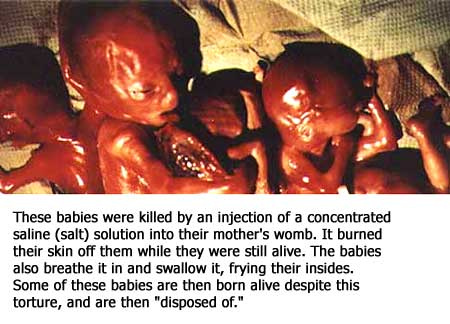1. And he began to speak to them by parables. A certain man planted a vineyard, and set a hedge about it, and dug a place for the winefat, and built a tower, and let it out to husbandmen, and went into a far country.
2. And at the season he sent to the husbandmen a servant, that he might receive from the husbandmen of the fruit of the vineyard.
3. And they caught him, and beat him, and sent him away empty.
4. And again he sent to them another servant; and at him they cast stones, and wounded him in the head, and sent him away shamefully handled.
5. And again he sent another; and him they killed, and many others; beating some, and killing some.
6. Having yet therefore one son, his well-beloved, he sent him also last to them, saying, They will reverence my son.
7. But those husbandmen said among themselves, This is the heir; come, let us kill him, and the inheritance shall be ours.
8. And they took him, and killed him, and cast him out of the vineyard.
9. What shall therefore the lord of the vineyard do? he will come and destroy the husbandmen, and will give the vineyard to others.
10. And have you not read this Scripture; The stone which the builders rejected is become the head of the corner:
11. This was the Lord's doing, and it is marvelous in our eyes?
12. And they sought to lay hold on him, but feared the people: for they knew that he had spoken the parable against them: and they left him, and went their way.
GLOSS. After the Lord had closed the mouths of His tempters by a wise question, He next shows their wickedness in a parable; wherefore it is said: And he began to speak to them by parables. A certain man planted a vineyard.
PSEUDO-JEROME; God the Father is called a man by a human conception. The vineyard is the house of Israel; the hedge is the guardianship of Angels; the winefat is the law, the tower is the temple, and the husbandmen, the priests.
BEDE; Or else, the hedge is the wall of the city, the winefat is the altar, or those winefats, by which the psalms receive their name.
THEOPHYL. Or, the hedge is the law, which prohibited their mingling with strangers. There follows, And went into afar country.
BEDE; Not by any change of place, but He seemed to go away from the vineyard, that He might leave the husbandmen to act on their own freewill. It goes on: And at the season he sent to the husbandmen a servant, that he might receive from the husbandmen of the fruit of the vineyard.
PSEUDO-JEROME; The servants who were sent were the prophets, the fruit of the vineyard is obedience; some of the prophets were beaten, others wounded, others slain. Wherefore it goes on, And they caught him, and beat him, and sent him away empty.
BEDE; By the servant who was first sent, we must understand Moses, but they beat him, and sent him away empty, because they angered Moses in the tents.
There follows, And again he sent to them another servant, and they wounded him in the head, and sent him away shamefully handled. This other servant means David and the other Psalmists, but they wounded Him in time head and shamefully handled him, because they despised the songs of the Psalmists, and rejected David himself, saying, What portion have we in David?
It goes on, And he sent another; and him they killed, and many others; beating some, and killing some. By the third servant and his companions, understand the band of the prophets. But which of the prophets did they not persecute? In these three kinds of servants, as the Lord Himself elsewhere pronounces, may be included in a figure all the doctors under the law, when He says, that all things must be fulfilled which were written in the Law of Moses, and in the Prophets, and in the Psalms, concerning Me.
THEOPHYL. Or else, By the first servant, understand the prophets who lived about the time of Elias, for Zedekiah the false prophet beat Micaiah; and by the second servant whom they wounded in the head, that is, evil entreated, We may understand the prophets who lived about the time of Hosea and Isaiah; but by the third servant understand the prophets who flourished about the time of Daniel and Ezekiel. It goes on, Having yet therefore one son, his well-beloved, he sent him also last to them, saying, Perchance they will reverence my son.
PSEUDO-JEROME; The well-beloved son and the last is the Only-begotten; and in that He Says, They will reverence my son, He speaks in irony.
BEDE; Or else, this is not said in ignorance, but God is said to doubt, that freedom of will may be left to man.
THEOPHYL. Or else, He said this not as though He were ignorant of what was to happen, but to show what it was right and fitting that they should do. But those husbandmen said amongst themselves, This is the heir, come, let us kill him, and the inheritance will be ours.
BEDE; The Lord proves most clearly that the chiefs of the Jews did not crucify the Son of God through ignorance, but through envy; for they understood that this was He to whom it was said, I will give you the heathen for your inheritance. But these evil husbandmen strove to seize upon it by slaying Him, when the Jews crucifying Him tried to extinguish the faith which is by Him, and rather to bring forward their own righteousness which is by the Law, and to thrust it on the nations, and to imbue them with it.
There follows: And they took him, and killed him, and cast him out of the vineyard.
THEOPHYL. That is, without Jerusalem, for the Lord was crucified out of the city.
PSEUDO-JEROME; Or else, they cast Him out of the vineyard, that is, out of the people, saying, You are a Samaritan, and have a devil. Or, as far as in them lay, they cast Him out of their own borders, and gave Him up to the Gentiles that they might receive Him.
There follows, What then will the Lord of the vineyard do? He will come and destroy those husbandmen, and give the vineyard to other.
AUG. Matthew indeed subjoins that they answered and said, He will miserably destroy those wicked men , which Mark here says was not their answer, but that the Lord after putting the question, as it were answered Himself. But we may easily understand either that their answer was, subjoined without the insertion of, they answered, or they said, which at the same time was implied; or else, that their answer, being the truth, was attributed to the Lord, since He also Himself gave this answer concerning them, being the Truth.
THEOPHYL. The Lord of the vineyard then is the Father of the Son who was slain, and the Son Himself is He who was slain, who will destroy those husbandmen, by giving them up to the Romans, and who will give the people to other husbandmen, that is, to the Apostles. Read the Acts of the Apostles, and you will find three thousand, and five thousand on a sudden believing and bearing fruit to God.
PSEUDO-JEROME; Or else, the vineyard is given to others, that is, to those who come from the east, and from the west, and from the south, and from the north, and who sit down with Abraham, Isaac, and Jacob in the kingdom of heaven.
BEDE; But that this was done by Divine interposition he affirms, by immediately afterwards adding, And have you not read this Scripture, The stone which the builders refused is become the head-stone in the corner? As if he had said, how is this prophecy to be fulfilled, save in that Christ, being rejected and slain by you, is to be preached to the Gentiles, who will believe on Him? Thus then as a corner stone, He will found the two people on Him self, and of the two people will build for Himself a city of the faithful, one temple. For the masters of the synagogue, whom He had just called husbandmen, He now calls builders, because the same persons, who seemed to cultivate His people, that they might bear the fruits of life, like a vineyard, were also commanded to construct and adorn this people, to be, as it were, a house worthy to have God for its inhabitant.
THEOPHYL. The stone then which the builders refused, the same has become the head-stone of the corner, that is, of the Church. For the Church is, as it were, the corner, joining together Jews and Gentiles; and this corner has been made by the Lord, and is wonderful in our eyes, that is, in the eyes of the faithful; for miracles meet with detraction from the faithless. The Church indeed is wonderful, as it were resting on wonders, for the Lord worked with the Apostles, and confirmed the word with signs. And this is what is meant, when it is said, This was the Lord's doing, and it is marvelous in our eyes.
PSEUDO-JEROME; This rejected stone, which is borne by that corner where the lamb and the bread met in the supper, ending the Old and beginning the New Testament, does things marvelous in our eyes as the topaz.
BEDE; But the Chief Priests showed that those things which the Lord had spoken were true; which is proved from what follows: And they sought to lay hold on him; for He Himself is the heir, whose unjust death He said was to be revenged by the Father. Again, in a moral sense, each of the faithful, when the Sacrament of Baptism is entrusted to him, receives on hire a vineyard, which he is to cultivate. But the servant sent to him is evil entreated, beaten, and cast out, when the word is heard by him and despised, or, what is worse, even blasphemed; further, he kills, as far as in him lies, the heir, who has trampled under foot time Son of God.
The evil husbandman is destroyed, and the vineyard given to another, when the humble shall be enriched with that gift of grace, which the proud man has scorned. And it happens daily in the Church, that the Chief Priests wishing to lay hands on Jesus, are held back by the multitude, when some one, who is a brother only in name, either blushes or fears to attack the unity of the faith of the Church, and of its peace, though he loves it not, on account of the number of good brethren who dwell together within it.
Catena Aurea Mark 12



 From her earliest of years Joan was known for her obedience to her parents, religious fervor, goodness, unselfish generosity and kindness toward her neighbors. Simonin Munier, one of Joan's childhood friends, tells how Joan had nursed him back to health when he was sick. Some of her playmates teased her for being 'too pious.' Others remembered how she would give up her bed to the homeless stranger who came to her father's door asking for shelter.
From her earliest of years Joan was known for her obedience to her parents, religious fervor, goodness, unselfish generosity and kindness toward her neighbors. Simonin Munier, one of Joan's childhood friends, tells how Joan had nursed him back to health when he was sick. Some of her playmates teased her for being 'too pious.' Others remembered how she would give up her bed to the homeless stranger who came to her father's door asking for shelter.